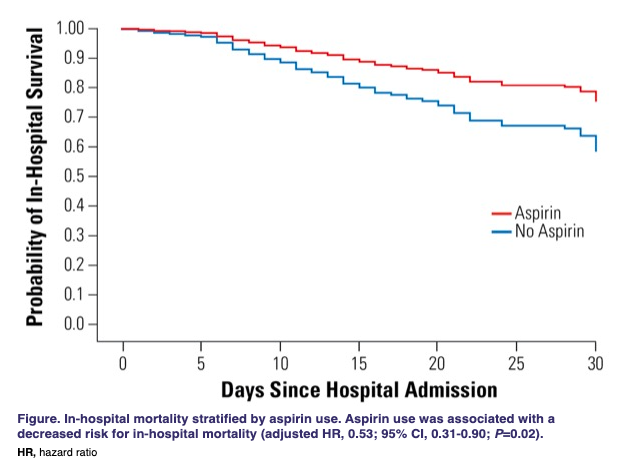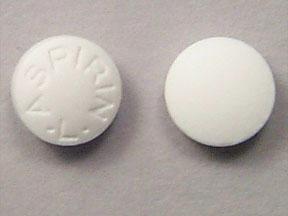One of the earliest (of many) bizarre symptoms of COVID-19 was blood clotting in the lungs. These clots could easily be seen when an endotracheal tube was removed from a ventilated patient. The tube was coated with a whole lot of mucus with red streaks. Not so pleasant to look at.
Naturally, heparin, an anticoagulant, was tried. A modest positive effect on survival was seen in a large retrospective study reported in BMJ in February. But heparin is tricky to use. It is considered to be a high-risk drug because both over-and underuse can be fatal.
Aspirin, another blood thinner, is a safer and cheaper alternative in that it can be given orally or IV and does not carry the same risks as heparin or warfarin. But is it effective in treating COVID-19 patients? A new observational study concludes that it is.
Jonathan Chow, MD, University, and colleagues concluded that aspirin was useful in keeping people off ventilators and preventing COVID-19 deaths. Here is a summary of their findings.
- 412 patients were included in the study
- 314 did not receive aspirin, 98 did.
- The 98 patients who received aspirin were a combination of those who were already taking aspirin before hospitalization and those given it following hospitalization.
- After adjusting for 8 confounders, the use of aspirin was associated with a 44% decrease in ventilation, a 43% decrease in ICU admission, and a 47% decrease in deaths (in the hospital).
- There was no difference in serious bleeding between the two groups.
“The results of the study do not really surprise us because we know that COVID causes excess clot formation and we know that aspirin is a very potent blood thinner...so when you have a disease that causes clots and a medication that thins your blood, that may lead to the protective effects that we found.”
Jonathan Chow, M.D.
Below is a graph showing the difference in in-hospital groups between the treated and untreated groups over a 30-day period following admission.

So, while aspirin will not treat other serious symptoms of COVID, such as cytokine storm, it does seem to have some utility in the treatment of very ill patients. Whether it will prevent mild disease from becoming severe is, perhaps, a more interesting question but is not addressed by this study.




